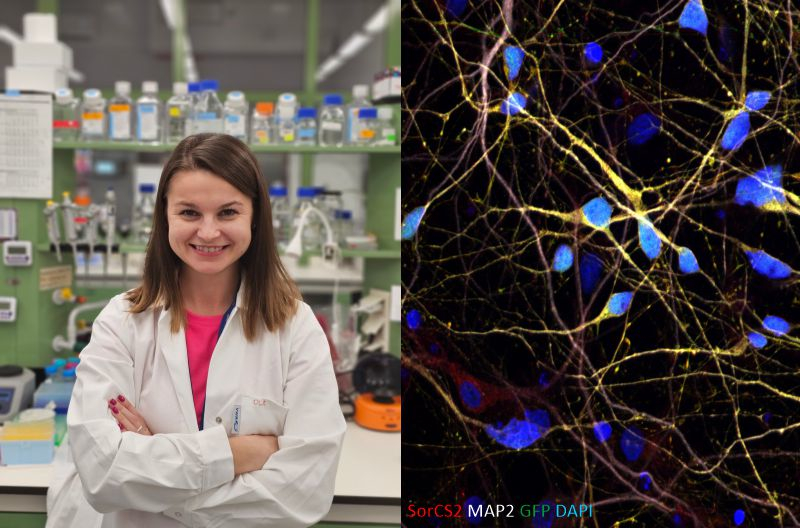SONATINA 9 grant for Dr Aleksandra Tempes to study congenital epilepsy in children

22 08 2025
Dr Aleksandra Tempes from the the Cellular Neurobiology Research Group, Faculty of Biology at the University of Warsaw has received a grant from the National Science Centre (NCN) in the SONATINA 9 competition for her project entitled ‘SorCS2-dependent neuronal protein sorting defects in perinatal epileptic encephalopathy: functional studies in human induced pluripotent stem cell-based models.’ The project aims to elucidate the mechanisms underlying neonatal epilepsy and to identify potential therapeutic approaches.
Perinatal encephalopathy is brain damage caused by reduced oxygen levels in the blood. One of its severe consequences is neonatal epilepsy—a neurological disorder characterized by seizures, which may result in cognitive, behavioural, and sensory impairments. The risk of developing epilepsy can have a genetic basis.
Through international collaboration with researchers from the University of Alberta, Canada, scientists from the Faculty of Biology at the University of Warsaw have discovered a mutation (c.2614C>T, p.Pro872Ser) in the SORCS2 gene in a child with neonatal epilepsy (Ambrose et al., 2025). The project seeks to investigate how this mutation affects neuronal function and to uncover the mechanisms linking it to the disease.
The research will use human neurons derived from induced pluripotent stem cells (iPSCs) to study neuronal protein recycling and its role in normal brain function. The findings will contribute to a deeper understanding of the mechanisms behind congenital epilepsy and may highlight new therapeutic targets for genetically determined forms of this disorder.
As part of the grant, dr. Tempes will complete a six-month research internship at the Michigan Neuroscience Institute, USA